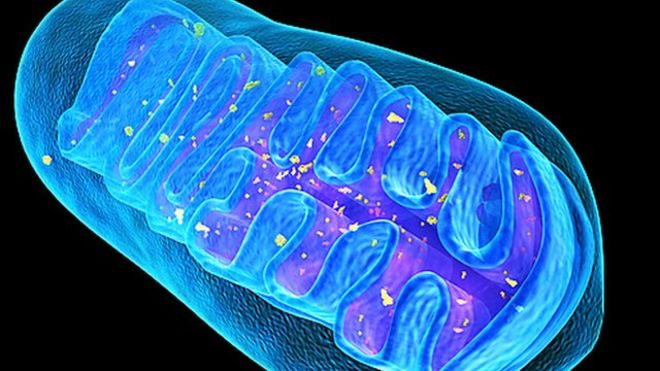What means Mitochondria?
Mitochondria are key energy sources for our bodies. They are tiny factories housed within our cells that take the foods we eat and the oxygen we breathe and convert them into energy. That energy is called ATP (adenosine triphosphate), and it is used to support every function in our bodies.
How many of those mitochondria do we have?
We have more than 100,000 trillion mitochondria in our bodies, and each one contains 17,000 little assembly lines for making ATP. Each cell holds hundreds or thousands of mitochondria; they are found in greater concentrations in active organs and tissues like the brain, heart, and muscles. Mitochondria are where metabolism happens.
What happens if those mitochondria do not work properly?
Very simple, when your mitochondria aren’t working properly, your metabolism runs less efficiently and can even shut down. Why, because these powerful energy producers are extremely sensitive and easily damaged. When they are damaged, we suffer from fatigue, low energy, pain, memory loss, rapid aging, and more.
Mitochondrial dysfunction – What does it mean?
Mitochondria regulate cellular suicide (apoptosis), so that old and dysfunctional cells will die, leaving space for new ones. But when mitochondria function becomes impaired and sends signals that tell normal cells to die, things go wrong. For instance, the destruction of brain cells leads to every single neurodegenerative condition known including Alzheimer’s disease, Parkinson’s disease and so forth. Mitochondrial dysfunction has wide-ranging implications, as the health of the mitochondria intimately affects every single cell, tissue and organ within your body.
Why mitochondrial dysfunction can occur?
The source of the problem is usually uncontrolled free radical production which causes oxidative damage to tissues, fat, proteins, DNA; causing them to rust.
Oxidation is the rust on our cars, the brown color that appears on an avocado when cut and exposed to air, the rancid vegetable oil in our cupboards, even the wrinkles that form on our skin. What most of us don’t realize is that our own tissues are rusting, our own fats are going rancid, and our brains are melting as we go about our daily lives.
Oxidative stress, is at the basis of oxidized cholesterol, stiff arteries (rusty pipes) and brain damage. Oxidative stress is a key player in dementia as well as autism.
How can we protect our mitochondria?
We produce our own anti-oxidants to fight free radical production, but these processed are easily overwhelmed. To avoid it follow those points:
Avoid processed carbohydrates
-
- Sugar
- Starches
- Grains
- Softdrinks
Move more and smart
- HIIT (high intensity interval training): increases efficiency and function of mitochondria
- Strenght training: increases muscels and number of mitochondria
Eat real, whole and colorful plant foods
Increase your intake of omega-3 fats
You might supplement with the following products:
- Resveratol
- D-Ribose
- Acetyl-L-carnitin
- Alpha-lipoic acid
- Magnesium
- Coenzyme Q10
Conclusion
Taking care of your mitochondria can make you leaner and smarter. It can help prevent aging and increase your energy.
Keep it up!
Ihr Youdowell Team
Disclaimer:
This information does not provide medical advice, professional diagnosis, treatment or services to you or to any other individual. We solely provide suggestions for you and your doctor to research and provide general information for educational purposes only. The information provided is not a substitute for medical or professional care, and you should not use the information in place of a visit, call consultation or the advice of your physician or other healthcare provider. Youdowell AG is not liable or responsible for any advice, course of treatment, diagnosis or any other information, services or product you obtain through this site.
References:
-
AMPK: guardian of metabolism and mitochondrial homeostasis: https://www.nature.com/articles/nrm.2017.95
-
Mitochondrial Dysfunction and Type 2 Diabetes: http://science.sciencemag.org/content/307/5708/384
-
Dysfunction of Mitochondria in Human Skeletal Muscle in Type 2 Diabetes: http://diabetes.diabetesjournals.org/content/51/10/2944.full
-
Molecular Mechanisms of Insulin Resistance in Humans and Their Potential Links With Mitochondrial Dysfunction: http://diabetes.diabetesjournals.org/content/55/Supplement_2/S9.short
